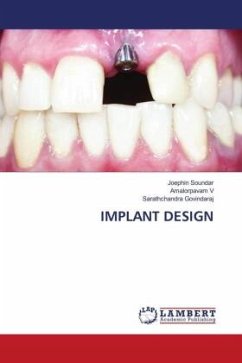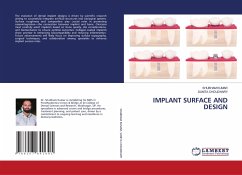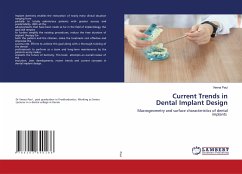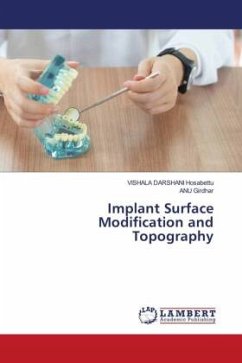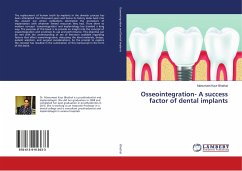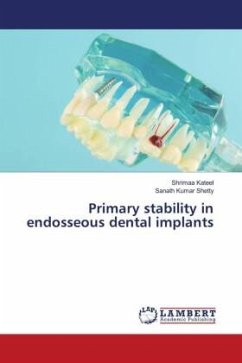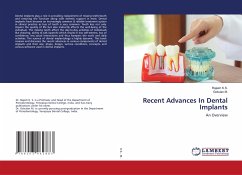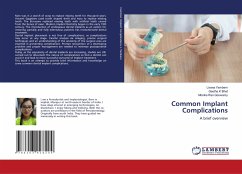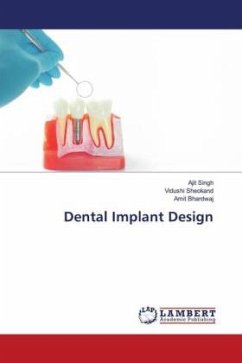
Dental Implant Design
Versandkostenfrei!
Versandfertig in 6-10 Tagen
47,99 €
inkl. MwSt.

PAYBACK Punkte
24 °P sammeln!
Oral rehabilitation of missing teeth with dental implants is a reliable treatment method associated with good long term clinical results. The success of dental implants is mainly influenced by the primary stability of the implant. The primary stability of the implant is influenced by surgical technique, bone quality, quantity, implant geometry and implant surface characteristics. Bone quality and quantity are not in the hands of the dentist but implant geometry and implant surface can be altered as per the need to achieve good primary stability and long term success of the implant treatment. A...
Oral rehabilitation of missing teeth with dental implants is a reliable treatment method associated with good long term clinical results. The success of dental implants is mainly influenced by the primary stability of the implant. The primary stability of the implant is influenced by surgical technique, bone quality, quantity, implant geometry and implant surface characteristics. Bone quality and quantity are not in the hands of the dentist but implant geometry and implant surface can be altered as per the need to achieve good primary stability and long term success of the implant treatment. A new era of oral rehabilitation began when Branemark introduced the concept of osseointegration as a predictable method for anchoring implants for the support of dental prosthesis. Factors that are particularly important for the establishment of reliable osseointegration are implant material, implant design, surface conditions, status of the bone, surgical technique, and implant loading conditions. Implant design refers to the three dimensional structure of the implant, with all the elements and characteristics that compose it.



